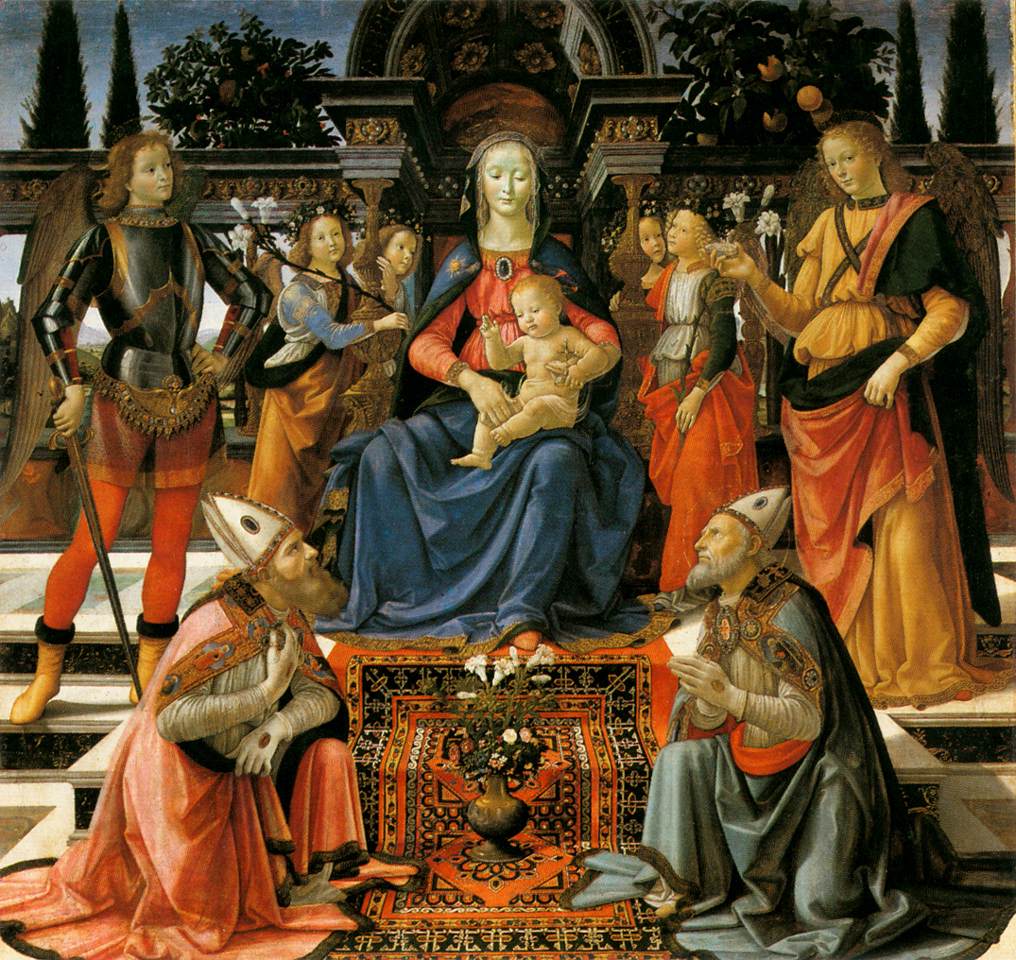
Historical
Oriental Rugs & Carpets
in Medieval European Paintings
Main Page
|
|
Madonna and Child Enthroned with Saints
c. 1483
Tempera on wood, 191 x 200 cm
Galleria degli Uffizi, Florence
by Domenico Ghirlandaio (b. 1449, Firenze, d. 1494, Firenze)

The painting depicting the Madonna
enthroned with Saints was painted for the church of San Giusto.
Altar paintings depicting the Virgin Mary and Christ together with several
saints were common in Ghirlandaio's day. In Renaissance Italy, enthroned
Madonnas, surrounded by saints, were extremely popular. In such a picture, which
was called a Sacra Conversazione, or "holy conversation", it was possible to
combine various saints in accordance with the requirements of the individual
donors and church representatives. The donor's patron saint would, for example,
be depicted next to the main patron saint of the church or altar, or the founder
of an order. It is frequently possible to tell, by looking at the depicted
saints, which church a painting was in and to which order the church belonged.
The choice of saints could in effect be extended to include, for example, the
patron saints of a town or guild.
Two such works by Ghirlandaio are now in the Galleria degli Uffizi in Florence .
In both pictures the Christ Child is depicted in a similar posture, his hand
raised in blessing. In the earlier painting with the tied back curtain, in Lucca
Cathedral, Ghirlandaio depicted all the saints in a standing position. But in
the later works the two saints at the front are kneeling. This makes a better
use of the surface of the picture and at the same time achieves a more
interesting arrangement of figures by creating a pyramidal composition formed by
the kneeling saints and the Madonna. The panels in the Uffizi are filled with
decorative accessories, such as the carpets on the steps leading up to the
throne and the flower vases, and these were surely influenced by Flemish works.
The depictions of the Madonna are, however, still in keeping with Verrocchio's
models.
The picture is composed in a strictly symmetrical manner. The archangel Michael
in shining armor is similar to St Julian in Ghirlandaio's earliest Sacra
Conversazione in Sant' Andrea a Brozzi. The trees are a quotation of the Last
Supper in Ognissanti, and the carpet is similar to the table covering in the
Ognissanti St Jerome.